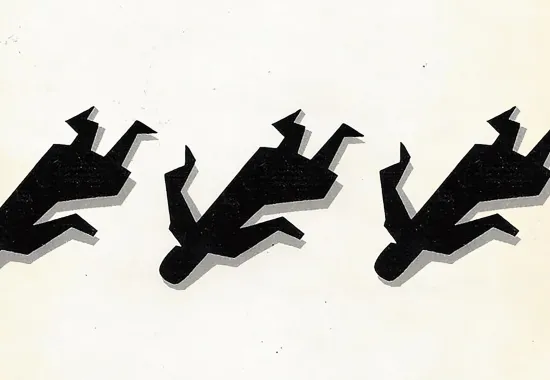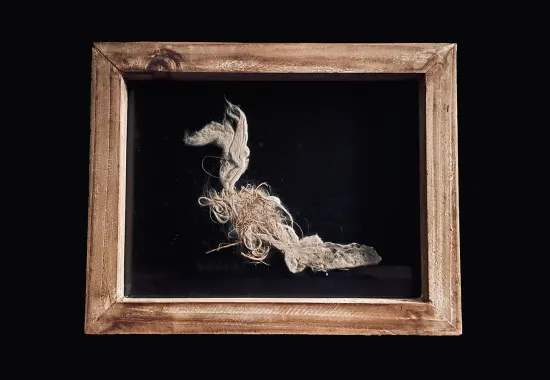Becoming Arina
I teach creative nonfiction writing to MFA students at the University of New Orleans. Inevitably, when we discuss memoir, the question of memory comes up. How can you remember things with any accuracy and reliability that happened so long ago? they ask. Especially dialogue. The students are wary of putting down dialogue from their deep past. Most of them are under thirty, so the time in the past they’re talking about that gives them pause is around fifteen to twenty years ago. How can we be expected to remember what someone said that long ago? they ask. Nonfiction is supposed to be a true account of what actually happened. Isn’t it? What should we do? they ask. I can’t remember one workshop I’ve taught where this question hasn’t been raised.
The piece of mine that the North American Review graciously agreed to publish is about events that took place forty years ago. It’s about a summer I spent living in New York City’s Soho in 1980. How do I have the gall to render words that were spoken so long ago? How can I give my readers—assuming I have any—the assurance that what they’re reading is what these people actually said? The readers paid to get into the house of nonfiction. That comes with certain promises, one of them being veracity. If I, the writer, say this person said that, then you, the reader, should trust they did, in fact, say that.
It wasn’t enough, I found, for me to employ pure memory. So, I did what I usually do in these cases. I became Arina. I turned myself into her. By becoming her, I could talk like her.
Wait a minute, you may say. No one—not even Mr. Memory—can guarantee that what they write down is precisely what someone said forty years ago! Give me a break. I wasn’t born yesterday. Maybe you were, Goodman, but not me.
You’re right. They can’t. Not exactly. But my contention is that no writer is expected to be a tape recorder. No writer is expected to render with court reporter-precision what someone said a generation ago. So, for example, if I report that Uncle William said, “I really don’t want to go to the dentist today,” and he actually, reading the court reporter’s notes back, said, “I’d rather not go to the dentist today,” am I a liar? Am I guilty? Should I give you your money back? Now, I will grant you that if I report Uncle William said, “Dude, no dentist for moi!” you should get your money back. That’s a different uncle. Uncle William would never have said that, and if I attribute those words to him, I am misleading you.
Ok, fine, you say. But you haven’t answered my question. How do you remember what a person said forty years ago?
I can tell you what I did, and do.
I try to become the person I’m quoting. I try to inhabit their body.
Literally.
My essay is titled “Arina.” The title character is a Russian painter I met when I was living in a loft in Soho one glorious, melancholy summer in 1980. She was a delight—funny, eccentric and 100% sure of herself. By now, having been in this writing game for a while, I knew that the best—and really the only way—to convey Arina surely on the page would be through her words. So I started to remember what she said.
But it wasn’t just what she said I was after, it was how she said it. The cadence of her voice, the Russian-influenced rhythms and her own Arina-esque diction. That would be critical to making her come alive on the page, just as it is for any memorable character, whatever the genre. Think of your favorite literary character. You hear their voice, don’t you?
It wasn’t enough, I found, for me to employ pure memory. So, I did what I usually do in these cases. I became Arina. I turned myself into her. By becoming her, I could talk like her. Isn’t that what actors do? They inhabit their characters. Marlon Brando became, was, Stanley Kowalski. The best ones all do that. Their actual selves disappear. This is what I tried to do with Arina. I left myself behind and, like Being John Malkovich, I saw the world through her eyes. I put myself inside her body. How did I do this? I transported myself. I can’t do this instantly. I have to concentrate. I can’t do this in a crowded room or in the car. I need to be someplace quiet where I can act out, if need be, and not worry what people will say if I suddenly, out loud, erupt with, “Richard, are you with woman?” as Arina does, and did. It helps to be a ham, I can tell you, to like to perform. I do.
Then, secure in Arina’s body, I transcribed what she says.
Can anyone do this? Why not? You have to let go, though. You can’t do this halfheartedly. You can’t do this with a wink. Were you ever in a high school play—or any play? How did you become that character? Wasn’t that your goal? Remember that process, and do it with your own characters from your past. Some are easier to occupy than others, I will grant you. My father, in another essay I wrote, was a hard one for me. For various reasons, best left on the therapist’s couch. But I wanted to get his words right. So, in I went.
Is it the right method for you? I don’t know. All I can say is, it works for me. And, in the end, I feel confident—or confident enough—to tell you that you are reading the words Arina spoke.
Recommended
A Behind the Scenes Look at Art Selection and Cover Design for the NAR
“Doubling and the Intelligent Mistake in Georges Simenon’s Maigret’s Madwoman”
What the Birds Showed My Wounded Child, My Adaptive Adolescent, & My Wise Adult






